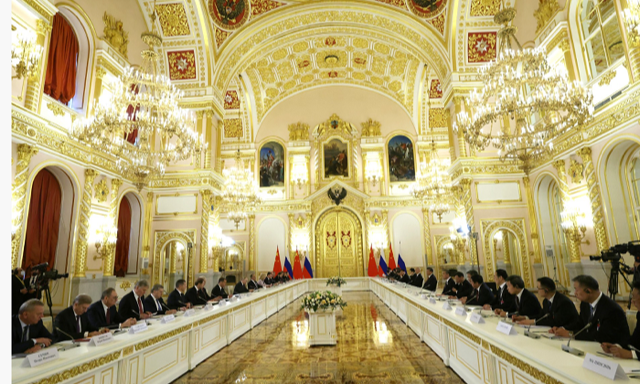Senior civil servants in Germany accused of working for Putin against own ministry – secret service investigating
TWO Russian spies have reportedly been unearthed working at the heart of Germany’s Federal Ministry of Economic Affairs.

The pair are both senior civil servants under the country’s current economy minister Robert Habeck, having also worked under his predecessor Peter Altmaier.

They aroused suspicion by “deviating wildly from the minister’s line” when filing internal reports concerning sensitive subjects such as Nord Stream 2, a 745-mile-long natural gas pipeline from Russia to Germany through the Baltic Sea.
The US$11 billion project was mothballed shortly before the Russian invasion of Ukraine in February. German chancellor Olaf Scholz suspended its certification in response to the Russian State Duma and President Vladimir Putin awarding official recognition to the breakaway Ukrainian republics of Donetsk and Luhansk.
The suspected spies apparently criticised the German administration’s U-turn, and instead supported Russia’s position that the suspension was a “matter of regret.”
According to German newspapers Die Zeit and Handelsblatt, their CVs were examined and found to contain “biographical peculiarities,” including one of the officials spending time studying in Russia, and also displaying “an emotional closeness” to the country.
Habeck’s team then made the decision to call in the Federal Office for the Protection of the Constitution (BfV), Germany’s domestic intelligence service.
The Federal Ministry of Economic Affairs said it did not comment on specific cases, but a spokesperson did say: “We always follow up on security-related information in close coordination with the Office for the Protection of the Constitution.”
The newspapers stressed that the preliminary investigation had not as yet uncovered tangible proof but should more damning evidence emerge it will come as a major embarrassment to the German government, which has been slowly and painfully weaning the country off an overreliance on Russian energy.
Die Zeit said it knows the identities of both the alleged spies, including their pay grades, but was not at liberty to publish them.
The newspaper’s deputy editor and security expert, Holger Stark, said that if the case were confirmed it would amount to a “fiasco for the German government and a triumph for the Kremlin, which would have succeeded in placing one or even more moles as high up as one of the most important ministries.”
German politicians meanwhile warned, the country must be prepared for further revelations.
Roderich Kiesewetter, of the Christian Democratic Union (CDU), said: “This could be just the tip of the iceberg. The espionage could also affect other ministries and institutions.”
The Free Democratic Party (FDP) politician, Konstantin Kuhle, described the suspicion as frightening. “While we naively focused on change through trade, Russia systematically expanded its espionage activities in Germany,” said the parliamentary group leader on Twitter. “Our counterintelligence capabilities and priorities are in dire need of review.”
Thomas Haldenwang, chief of the BfV, warned only last month that levels of espionage were at least as high as during the Cold War – and that they could be “significantly higher.”
In January, German prosecutors charged a Russian scientist working at a German university with passing on information about Europe’s Ariane space rocket programme to the Russian foreign intelligence service, SVR.




























































































































































































































































































